The Kyubi, or Nine-Tailed Fox, is a legendary yokai (supernatural creature) that has fascinated people across Asia, especially in China, India, and Japan. Known for its mystical powers and nine beautiful tails, the Kyubi can transform into a beautiful woman to enchant and deceive humans, often causing chaos. Over time, the story of this fox spirit evolved as it moved from culture to culture, leaving a powerful imprint in Japan, where it became known as Tamamo-no-Mae (玉藻前).
Kyubi has become a popular figure in Japanese pop culture and gaming. In the game “Nioh 2,” Kyubi appears as a guardian spirit, captivating a new generation of fans with its allure and mystique. This article delves into the origins of the Nine-Tailed Fox, its transformation in Japanese folklore, and its enduring appeal as both a feared and admired yokai.
What is the Kyubi (Nine-Tailed Fox)?
Origins of the Kyubi (Nine-Tailed Fox) in Chinese and Indian Mythology

The origins of the Kyubi can be traced back to ancient Chinese and Indian mythology. In China, the Nine-Tailed Fox was a mystical creature believed to be a divine spirit. Depending on the tale, the fox could either be a benevolent spirit or a malevolent one. Indian folklore also includes multi-tailed spirit animals believed to act as agents of the gods, which may have influenced the development of the Kyubi legend in Asia.
The Nine-Tailed Fox in Chinese Mythology: The Tale of Daji
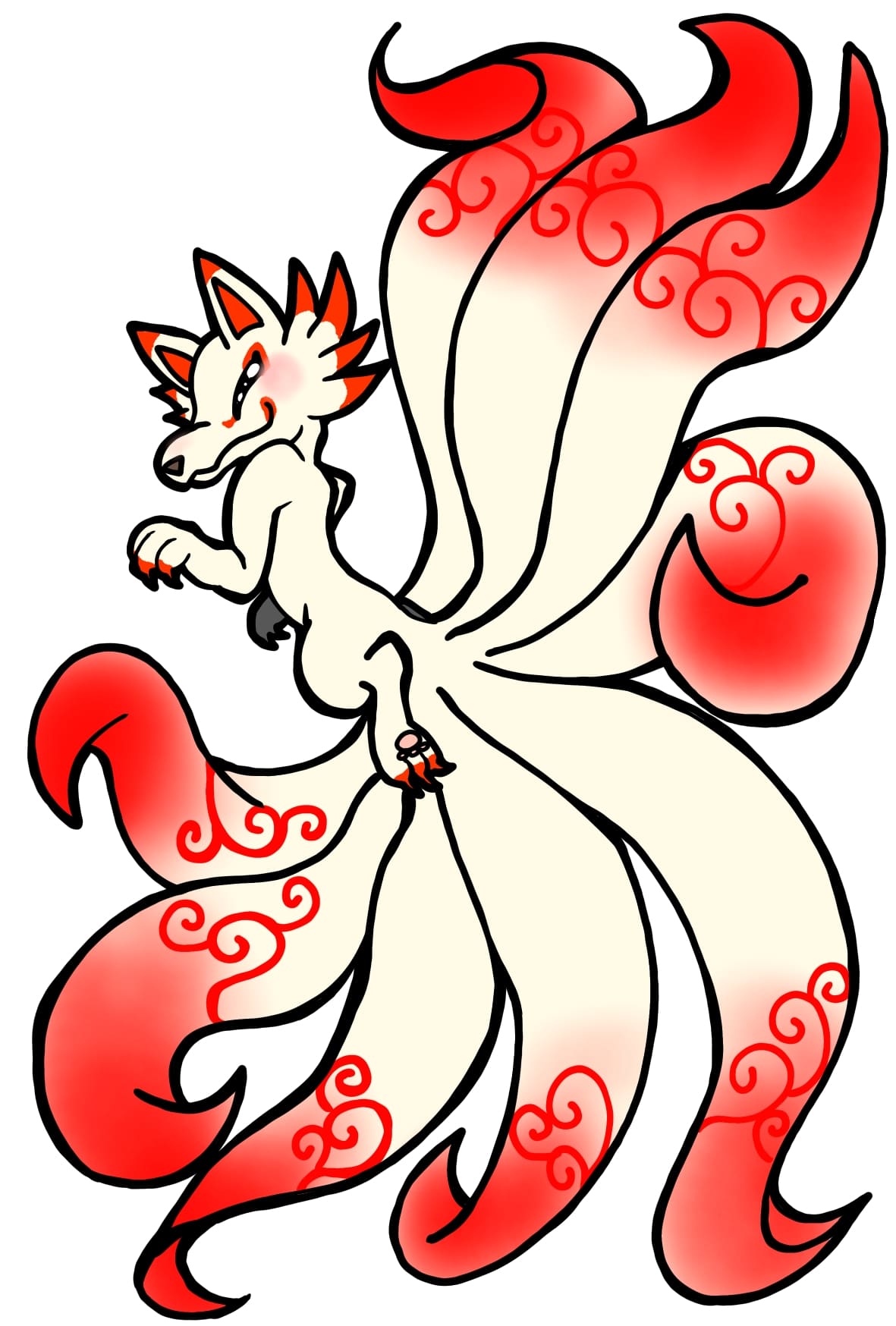
One of the most infamous Kyubi tales is that of Daji, a beautiful woman in the late Shang Dynasty who was possessed by a Nine-Tailed Fox. Daji’s beauty and charm captivated King Zhou, and she used her influence to drive him to tyranny, eventually leading to the fall of the Shang Dynasty. Due to this legend, the Kyubi was feared as a seductress that could bring down empires and became a symbol of chaos and deception.
Nine-Tailed Spirit Animals in Indian Legends

In Indian mythology, multi-tailed animals were sometimes depicted as divine creatures that served as emissaries of the gods. As these stories traveled across Asia, they likely merged with local legends, eventually giving rise to the Nine-Tailed Fox that we know today.
The Kyubi (Nine-Tailed Fox) ’s Arrival in Japan

Kyubi’s story in Japan!
The Kyubi in Japan: The Tamamo-no-Mae Legend

In Japan, the Nine-Tailed Fox arrived in the Heian period and became known as Tamamo-no-Mae, a beautiful and mysterious woman who bewitched Emperor Toba. Tamamo-no-Mae spread illness and misfortune throughout the court until her true nature was exposed. The fox fled but was eventually hunted down and slain at the plains of Nasu. Even after her death, her spirit remained, transforming into the infamous Sessho-seki (Killing Stone) that continued to curse anyone who approached.


This rock with Shimenawa is “Sessho-seki”.

But it broke down in 2022.
Look at the picture below!


Then was Kyubi released…?

It’s a secret…
Sessho-seki
Tochigi prefecture
The Impact of the Kyubi Legend on Japanese Culture
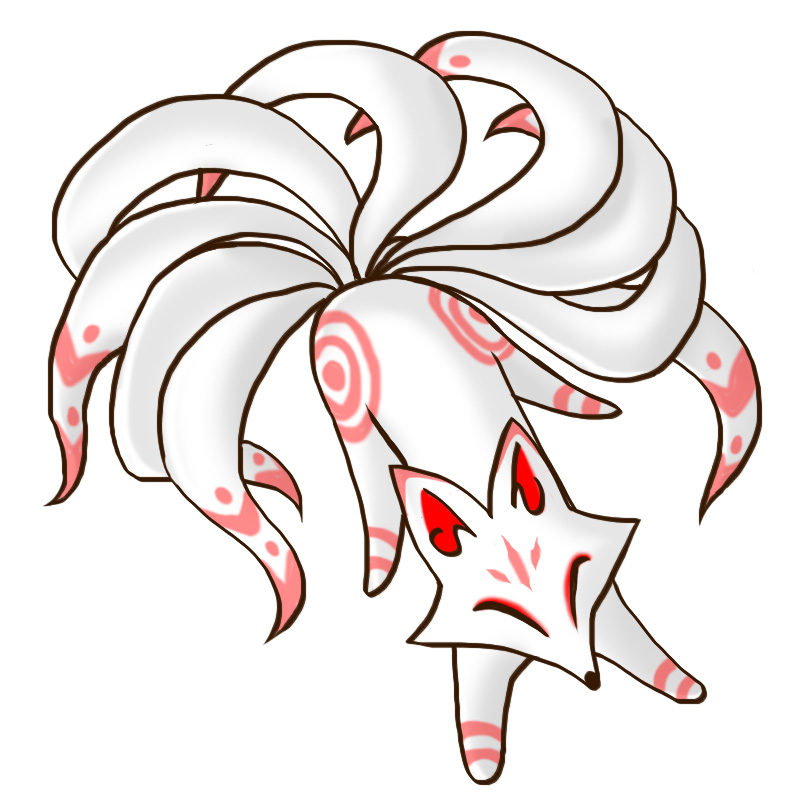
The Tamamo-no-Mae legend greatly influenced Japanese literature and theater, inspiring works in Noh and Kabuki plays. Her tale exemplified the theme of the seductive woman as a symbol of social and political turmoil. Over centuries, Tamamo-no-Mae came to symbolize the dangerous allure of beauty and power, becoming one of the most recognized yokai in Japanese folklore.
The Kyubi (Nine-Tailed Fox) as a Guardian Spirit in “Nioh 2”
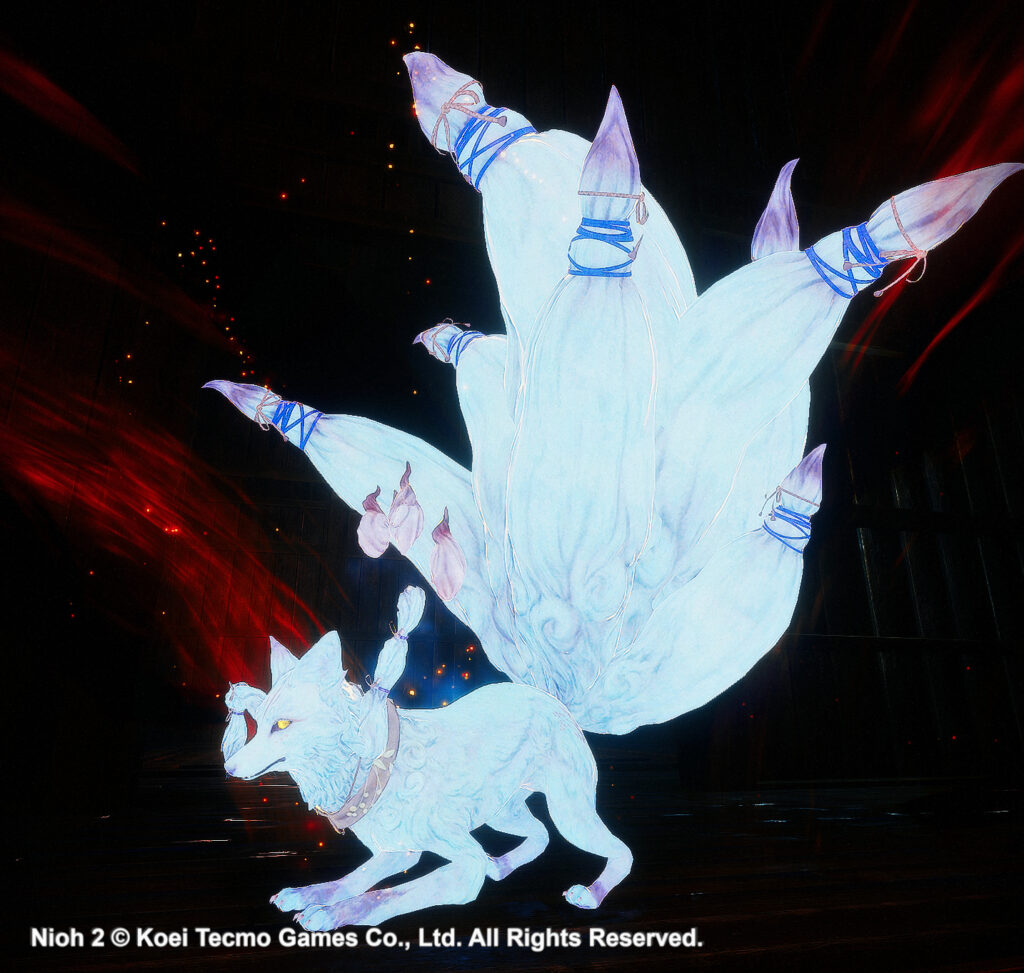
Kyubi’s Role as a Guardian Spirit in the Game
In the popular video game “Nioh 2,” Kyubi appears as a powerful guardian spirit. The character embodies both mystique and strength, aiding the player in combat and providing mystical enhancements. The game captures the essence of the Kyubi’s supernatural powers, offering players a unique glimpse into Japan’s traditional yokai legends.
The Kyubi’s Game Depiction and its Link to Japanese Folklore
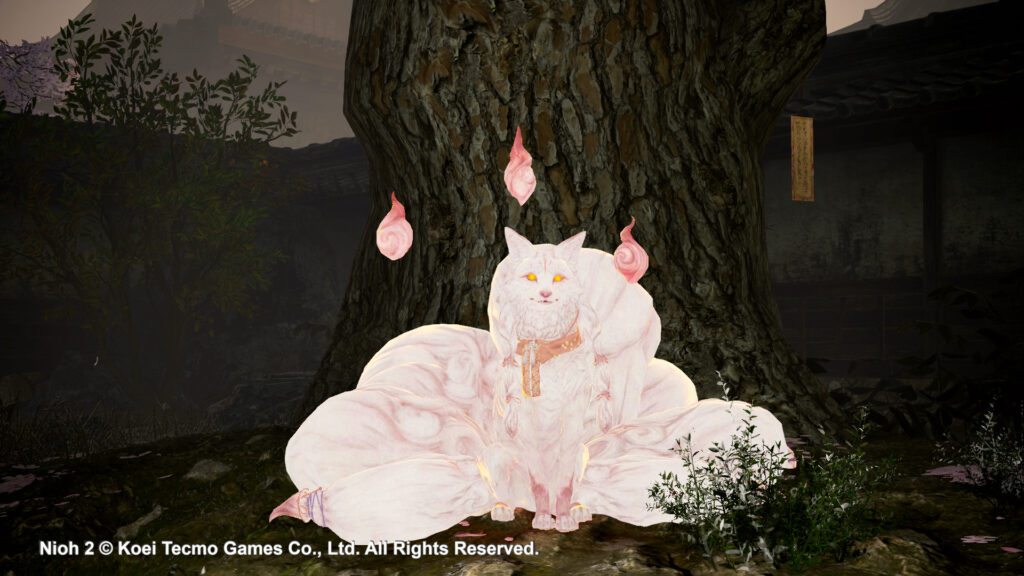
In “Nioh 2,” Kyubi serves as both an ally and an embodiment of Japan’s mysterious and mythical yokai lore. Through its presence, the game introduces Kyubi to new audiences, blending traditional Japanese folklore with modern gaming culture and highlighting the lasting appeal of this mythical fox.
Kyubi (Nine-Tailed Fox) Q&A
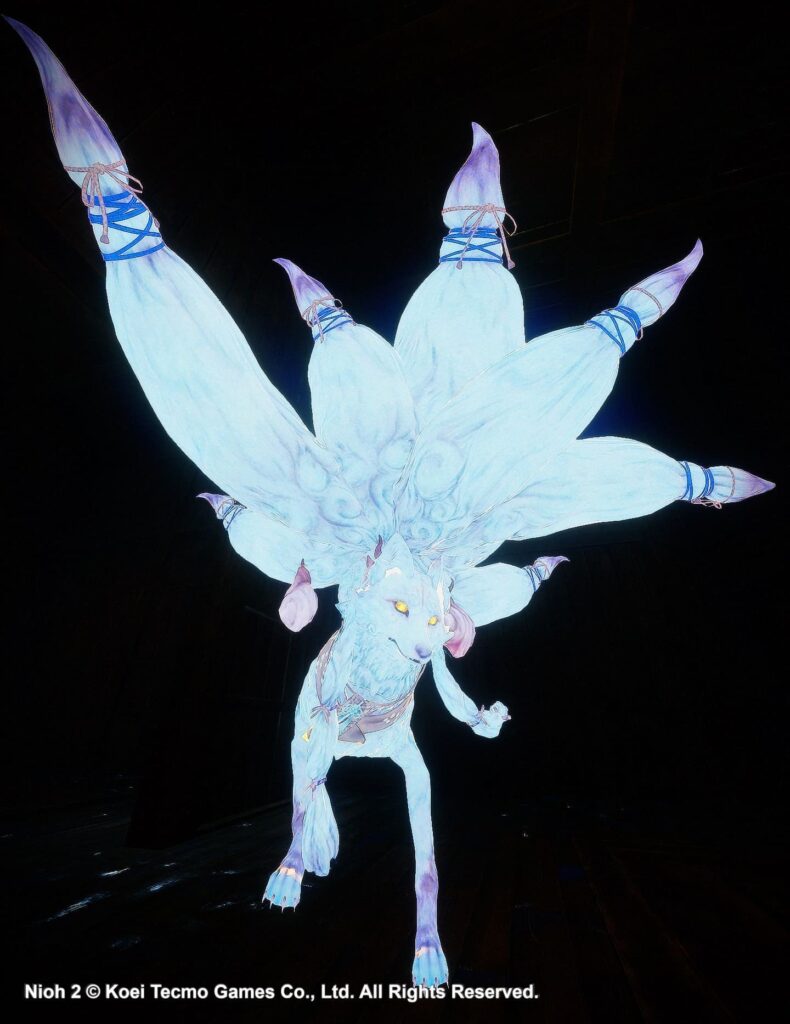
- QDid the Kyubi actually exist?
- A
The Kyubi is a mythical creature from folklore. However, the recurring presence of similar tales across different cultures suggests that this creature may represent universal themes of beauty, power, and chaos.
- QWhy does the Kyubi transform into a beautiful woman?
- A
The Kyubi often transforms to deceive humans, using beauty to lure them into chaos and misfortune. This theme has been used to represent the dual nature of allure and danger.
Conclusion
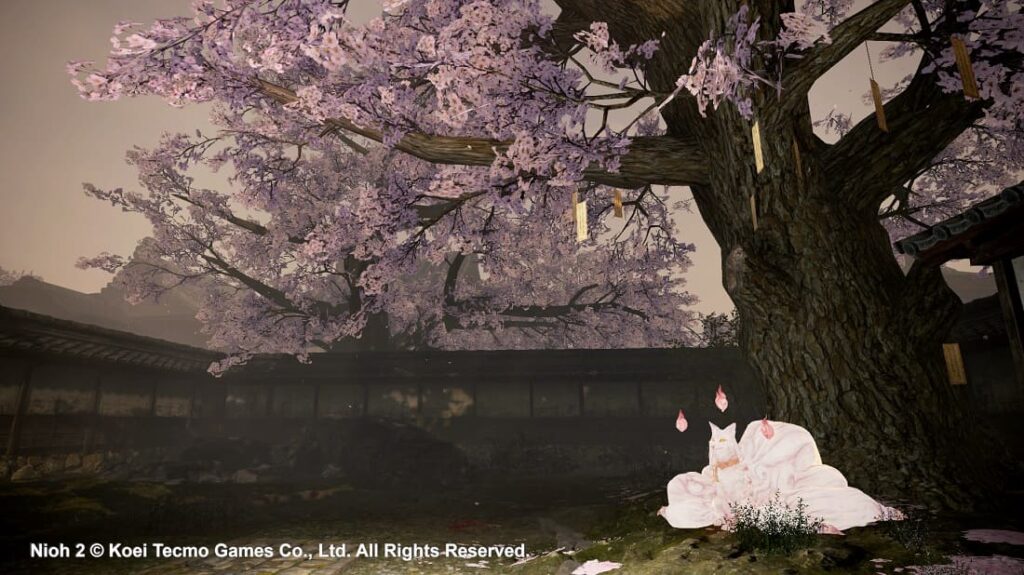
The Kyubi, or Nine-Tailed Fox, is an iconic figure in Japanese yokai folklore, and its influence stretches back to ancient China and India. Over the centuries, it has come to represent both beauty and danger, especially through Japan’s Tamamo-no-Mae legend, where it appears as a beautiful woman who brings ruin and disease. Whether as a yokai that haunts Japan’s classical literature or as a guardian spirit in the game “Nioh 2,” the Kyubi continues to inspire fear, fascination, and admiration across cultures and generations.
The Kyubi embodies the mysterious power of yokai within Japanese folklore. As both a feared entity and a beloved figure in popular culture, the legend of Kyubi reinforces Japan’s rich tradition of myth and magic.

There are many other Guardian Spirits in Nioh & Nioh 2!

Yes! I would like to know more about them!

Me too, I can’t wait to know more!

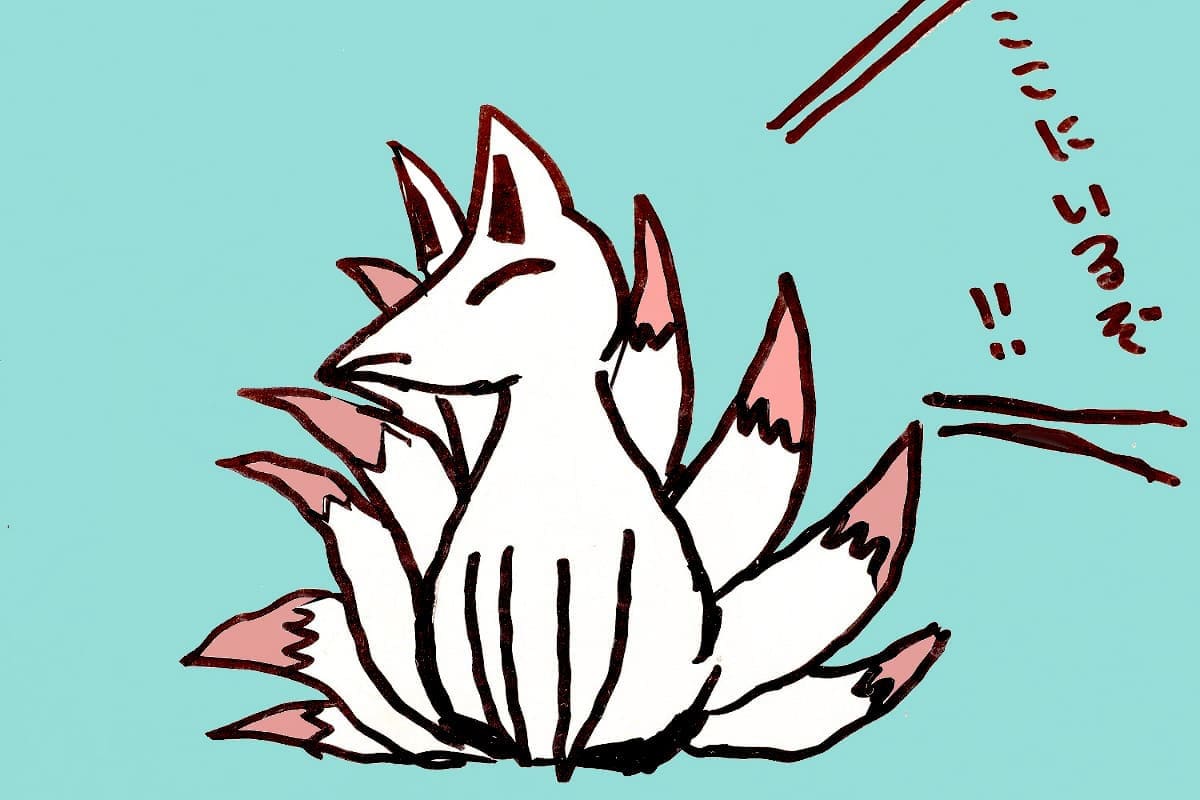



Comments